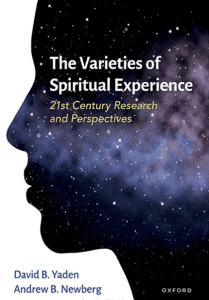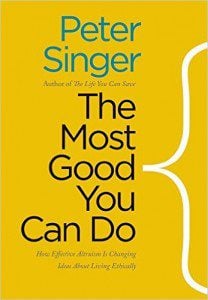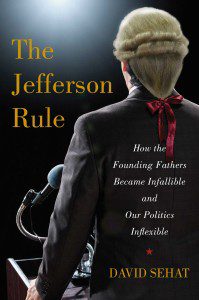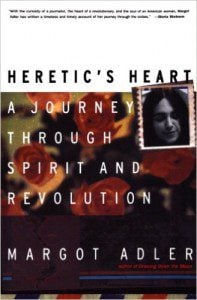Our human population has septupled (increased sevenfold) in a mere two centuries — from approximately 1 billion in 1800 to more than 7 billion today. The resulting environmental impact of our species is jeopardizing the entire planet’s climate. We have not, however, always been aware of our potential to have a cataclysmic effect on Earth. As Elizabeth Kolbert wrote about in her Pulitzer Prize winning book The Sixth Extinction, prior to fossil discoveries in the 1700s, we humans didn’t know that any species had ever become extinct, but since then we have come to learn that
there “have been five great mass extinctions during the history of life on this planet”…. The first took place…some 450 million years ago, when living things were still mainly confined to the water. The most devastating took place at the end of the Permian period, some 250 million years ago, and it came perilously close to emptying the earth out altogether…. The most recent — and famous — mass extinction came at the close of the Cretaceous period; it wiped out, in addition to the dinosaurs, the plesiosaurs, the mosasaurs, the ammonites, and the pterosaurs. (6)
Kolbert continues that, “In pushing other species to extinction, humanity is busy sawing off the limb on which it perches,” increasing the likelihood of a potential sixth mass extinction on this planet. There is relatedly an increasing use of the term “Anthropocene” (similar to the word anthropology for the study of humans) to describe a new era of geologic time in which the dominant force shaping the face of the Earth is humanity.
Here in the early twenty-first century, it is important to be honest about what it means to be heirs to the paradigm-shifting discoveries of Copernicus, Darwin, Einstein, Hubble, and so many others. I invite you to consider that minimally, this broadened perspective means at least two things. First, it means that we humans are much less singularly significant than it was once reasonable to maintain. Our species has been wrestling for almost 500 years with the growing awareness that that we are not the center of the universe but rather inhabitants of one far-flung planet, on the edge of one galaxy, that is merely one of more than 100 billion other galaxies in the universe. Second, it means that other beings on this planet are more much significant than was once reasonable to grant — both intrinsically significant to themselves and extrinsically significant to us — since our survival depends on the continued flourishing of the diverse, interdependent ecosystems that comprise this planet’s biosphere.
The person who has most helped me in thinking through how we might make such a shift in worldview with the maximum amount of integrity and compassion is Peter Singer (1946 -), a professor of bioethics at Princeton University, who “is almost certainly the best-known and most widely read of all contemporary philosophers. He may also…be one of the most influential ones…. His 1975 book Animal Liberation, translated into thirteen languages, has sold more than half a million copies” (Kuhse 2). That being said, Singer himself admits that:
“When I wrote [Animal Liberation], I really thought the book would change the world. I know it sounds a little grand now, but at the time the sixties still existed for us. It looked as if real changes were possible, and I let myself believe that this would be one of them. All you have to do is walk around the corner to McDonald’s to see how successful I have been. (11)
However, Singer’s lament about factory farming and the fast food industry is from 1999. And I just saw this past week that McDonald’s is beginning a decade-long plan to use only cage-free eggs — in the wake of its other recent announcement that it is moving away from chicken treated with antibiotics. And while McDonald’s is a long way from getting the Michael Pollan food-justice seal of approval, when such food giants make a shift in the right direction, there are significant ripple effects across the whole industry.
To give you an overview of how Singer thinks we might become less human-centric and more compassionate toward all beings who can experience suffering, the following are four of his central convictions:
- Pain is bad, and similar amounts of pain are equally bad, no matter whose pain it might be. By “pain” here I would include suffering and distress of all kinds. This does not meant that pain is the only thing that is bad, or that inflicting pain is always wrong. Sometimes it may be necessary to inflict pain and suffering on oneself or others…because it will lead to less suffering in the long run….
- Humans are not the only beings capable of feeling pain or of suffering…. Of course, the nature of the beings will affect how much pain they suffer in any given situation.
- When we consider how serious it is to take a life, we should look, not at the…species to which that being belongs, but at the characteristics of the individual being killed, for example, its own desire about continuing to live, or the kind of life it is capable of living.
- We are responsible not only for what we do but also for what we could have prevented. We may never kill a stranger, but we know that our intervention will save the lives of many strangers in a distant country, and yet do nothing…. Consider, for example, the fact that the sum that buys us a meal in a fine restaurant would be enough to provide basic health care to several children who might otherwise die of easily preventable diseases. (Writings on an Ethical Life, xv – xvi)
Some critics say that Singer, as well as other supporters of any form of, for example, legalized euthanasia, risk the slippery slope down to Nazi science, an accusation that fails to account for Singer being well aware of his own family’s history as the child of Jewish parents who fled their native Austria in the late 1930s (Kuhse 5, 9). There is also the perennial question of whether or not Singer is able to follow the implications of his logic. He did not, for example, “kill his mother, who had advanced Alzheimer’s disease and whose care was consuming money that could, those critics said, more profitably be spent elsewhere” (11). But Singer has never said he is a perfectly rational actor; rather, his challenge, both to himself and others, is to continually live into a more ethical way of life. For instance, he has for many years given away more than 20% of his income to organizations that have been proven to do the most good for the world’s poor — an approach he calls “Effective Altruism.”
My title for this post, borrowed from an anthology of Singer’s essays, is “Unsanctifying Human Life.” What I take him to mean is that it is no longer reasonable to maintain the ancient religious worldview that all human life is sacred and inviolable from womb to tomb without exception. Instead, for more than 150 years our species has been wrestling with Darwin’s discovery that we humans are not “a little lower than the angels,” but rather a “little higher that the apes,” and deeply interconnected with the other life forms and larger ecosystems of this planet. Put even more provocatively, it might be increasingly helpful not to think of all humans as “Children of God,” but instead to think of ourselves as part of the Animal Kingdom.
mean is that it is no longer reasonable to maintain the ancient religious worldview that all human life is sacred and inviolable from womb to tomb without exception. Instead, for more than 150 years our species has been wrestling with Darwin’s discovery that we humans are not “a little lower than the angels,” but rather a “little higher that the apes,” and deeply interconnected with the other life forms and larger ecosystems of this planet. Put even more provocatively, it might be increasingly helpful not to think of all humans as “Children of God,” but instead to think of ourselves as part of the Animal Kingdom.
Relatedly, within my own tradition of Unitarian Universalism, there is a small, but growing movement inviting us to ask if our Seven Principles — which thirty years ago were revised to become less male-centric — need now, especially in light of global climate change, to become less human-centric. In particular, the First Principle Project proposes that our support for the “the inherent worth and dignity of every person” be expanded to recognize “the inherent worth and dignity of every being.” We are human beings — and I hear this proposal as a challenge to expand our circle of care, compassion, and concern to other beings on this planet who also experience forms of sentience and subjectivity. As important as our First Principle is — grounded in the opening lines of the U.N.’s Universal Declaration of Human Rights — there is a growing sense that we need to balance individual human rights with the common good of all beings on this one far-flung but beautiful and precious planet.
For now, I will conclude with the closing part of a Buddhist metta (“loving-kindness”) meditation that seeks to open our heart and expand our compassion — starting with compassion for ourselves, then extending to other human beings, and finally including all beings who have the capacity to experience suffering:
May all beings be filled with loving-kindness
May all beings be well.
May all beings be peaceful and at ease.
May all beings awaken to their true nature.
May all beings be free.
The Rev. Dr. Carl Gregg is a trained spiritual director, a D.Min. graduate of San Francisco Theological Seminary, and the minister of the Unitarian Universalist Congregation of Frederick, Maryland. Follow him on Facebook (facebook.com/carlgregg) and Twitter (@carlgregg).
Learn more about Unitarian Universalism:
http://www.uua.org/beliefs/principles
















